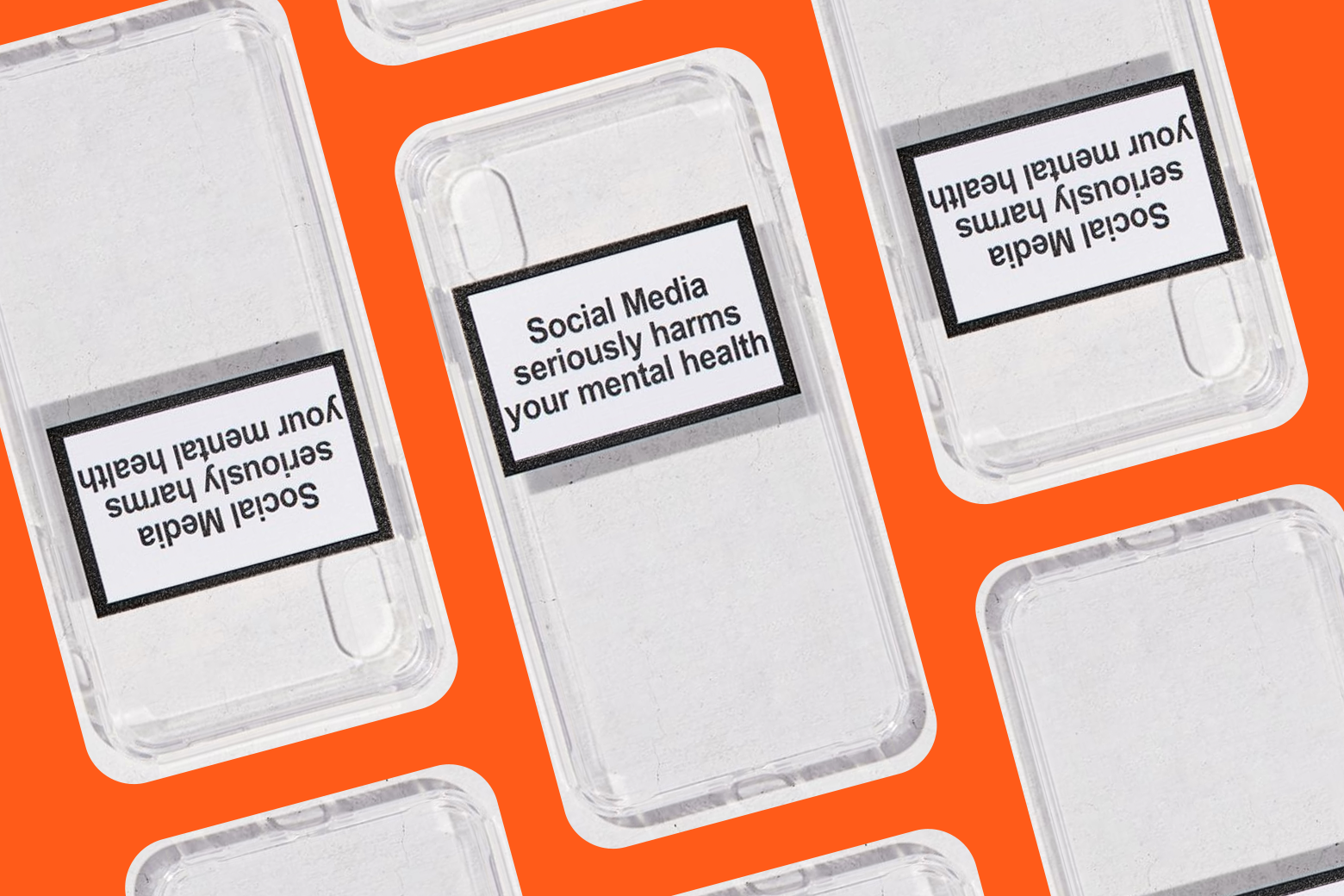“Social media seriously harms your mental health,” reads model Delilah Belle’s iPhone case, captured in a mirror selfie that also highlights her artificial nails, clear skin, expertly applied cat eye, and pouty lips. The bottom half of the case sports what is a parody of a drug label advertising “LIKES,” which are defined as a “loneliness reliever, depression reducer.”
The case is made by Urban Sophistication and has taken off as an accessory for professionally attractive women, as reporter Ashley Carman explains at the Verge. It’s an astute piece of trend reporting. Carman even gets a few models on the record talking about how the case helps them vocalize how social media makes them feel bad. My one complaint? It is not, as the piece’s headline suggests, “the phone case models use to subvert Instagram,” because neither the case, nor the way the women are using it, is effective at subverting Instagram. The phone case isn’t undermining Instagram’s power, as the title suggests. It’s more just a sign that even as consumers become skeptical of the platform, the platform can mutate to accommodate said skepticism.
Folks who use the case say they are doing so purposefully. “I hope that everyone realizes how social media changes our minds and the way we see each other,” Maria Gabriela Santos, a model with a modest number of followers and owner of the case, told Carman. “Our social media appearance is not our real personality.” The caption that Belle posted with that mirror selfie extolled the benefits of logging off: “Heading to London! I love a good long flight cause I never buy WiFi on the plane so i get a good break from social media.”
It’s fine for Santos and Belle to attempt to “raise awareness.” But true subversion of the platform would require something that actually breaks the mold: pictures or captions that really do reveal the human being behind the feed, rather than just saying there is one, or dramatically limiting use even when one has good cell service. They could also just use the platform for something other than lifestyle projection, as others do—like as an education tool for the ingredients behind skin care, or a platform on which to recommend books.
The truth is that social media is not uniformly bad for your mental health, as the phone case claims. According to researchers, whether screen time helps or hurts really depends on how you spend it—connecting with friends and discovering new things might have a markedly different effect than, say, endlessly scrolling through photos of models like Santos and Belle.
The problem with these women becoming the “messengers” of social media’s potential to harm is that their livelihood is dependent on their ability to produce enviable images. In overall tone, their feeds are not so much those of independent individuals but more an extension of a grand marketing campaign for beauty and wealth. A brand might not be paying them for each post, but brands want to buy space in their feeds or book them for shoots because of what else exists there, which means their feeds are ultimately beholden to the brands. This makes the phone cases “subversive” in the same way campaigns or magazine editorials that forgo airbrushing, a strict weight limit, or perfectly hairless armpits are “subversive.” A small deviation from the standard lays claim to authenticity, while ultimately leaving a fantasyland of sky-high beauty standards intact. And indeed, perhaps the fact that models are getting the case is the real tell: These days, it’s trendy to suggest social media is bad, even while staying on social media.
Which may be why, for me, the phone cases evoke something else: a taunting acknowledgment of the user’s power. This image of Gigi Hadid holding the mental health case as she sits with clips in her hair, presumably in the process of getting glammed up, seems to be saying exactly that: I’m so devastatingly gorgeous I can cause despair. The danger is part of the look.
Future Tense is a partnership of Slate, New America, and Arizona State University that examines emerging technologies, public policy, and society.
